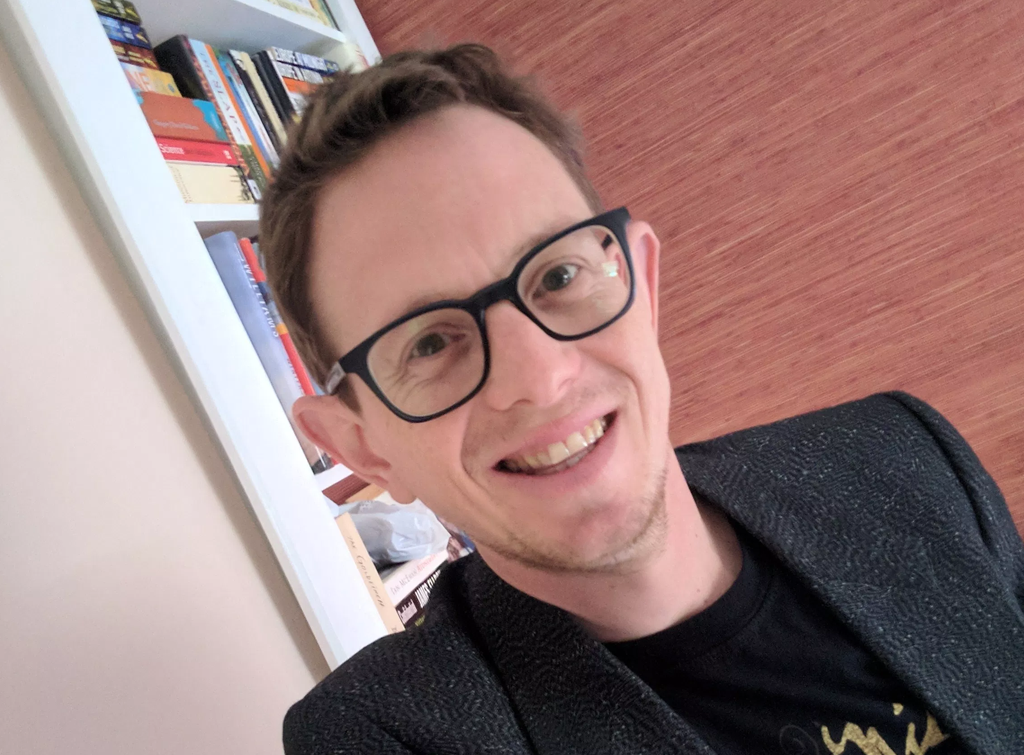“If you don’t share this stuff, you’re not going to find the help that you need.” – Matt’s Story

As part of Cancer Talk Week January 2018, we’re sharing Matt’s inspirational story. Matt was diagnosed with testicular cancer in June 2016 and finished chemotherapy in July 2017. During his experience of cancer, Matt found that talking about how he was feeling helped him to get the emotional support he needed.
Emotional impact after treatment
I didn’t tell anybody about this because I felt a bit guilty – like why would I tell friends and family I had cancer and was going through this because, what a burden to put on them. In hindsight that was the stupidest thing ever because then you’re on your own.
I think it took a couple of weeks later, couple of months later, for everything that I’d gone through to sort of, make me realise the big emotional impact this has had on me.
I’d been in work and I’d been struggling for a while, everything was just seeming too much and just one day I was in a meeting, had a phone call from the Doctor asking me to make an appointment and I was like ‘oh my gosh, what could this be’. It was just a check-up and I just started crying, so the Doctor signed me off and I had about 6 weeks off work.
I don’t know why, but I was feeling incredibly anxious about everything. The Doctor told me that it was a perfectly ordinary reaction to something as big as I’d gone through.
I think at that point it dawned on me that it was a big deal, and that’s when I phoned Macmillan.
Macmillan and other support
I was on the phone to Macmillan the person I spoke to asked when I was diagnosed and I told him about 2 or 3 months ago and that I should be over it by now. His response was ‘no, why would you, why would you think you should be over something like this so soon’.
I didn’t know as there’s no guide book to tell you what time scales and how you should be feeling, so you’re kind of on your own for that sort of thing and understanding how you’re feeling.
The support line was amazing, I have to say, the person I spoke to just normalised everything and said that not many people will feel the full effects straight away.
And that made me realise that actually it’s alright to feel sad, it’s alright not to be a hero, it’s perfectly normal to feel terribly sad about what’s happened.
I also found an online support group called Check ‘Em Lads, which is just men talking about their experience. Everyone was having a similar experience and it was a huge relief to realise one, I’m not alone and two, yes this is it, this is normal, it’s just men don’t talk about it.
Now I feel like I’m looking forward to 2018, even though I’ve got the 3-month check-ups coming up. Before I wasn’t, I didn’t feel like I’d ever get to a point where I could be happy again, but now I feel excited about 2018, I feel that even with these hospital appointments coming up, I’ve had counselling and I know how now to work through the anxiety.

Matt’s advice for others living with and beyond cancer
If I hadn’t spoken to Macmillan or any of the support services, I wouldn’t have known that any of this was normal. If you don’t share this stuff, you’re not going to find the help that you need.
It’s so important to talk to someone like Macmillan, and I would just like to say to anyone who’s going through this, that the minute you found out you’ve got cancer, or you think you have, speak to someone.
Speak to friends, speak to family, even speak to your employer, or speak to Macmillan or a counsellor just do it straight away. The less you spend time having these thoughts circling around in your mind, the better your recover will be.
Matt’s advice for people wanting to support someone living with cancer
Cancer is such a big word, that people feel uncomfortable talking about it and they don’t need to, don’t fear it.
When someone has got cancer, it doesn’t mean that it’s an end of life conversation to be had. It’s a conversation about here and how; how you are feeling right now.
And that’s really important; not to fear the future and be uncertain what to say.
Just ask: ‘how are you feeling right now?’, ‘how are you doing now’ ‘how are you feeling about what you’ve heard’ or ‘is there anything I can do, or do you just want to talk?’”
That’s such an easy conversation to have, so just take the cancer out of it. It’s a person, who’s got feelings and right now probably just needs someone to listen to them, so just listen.